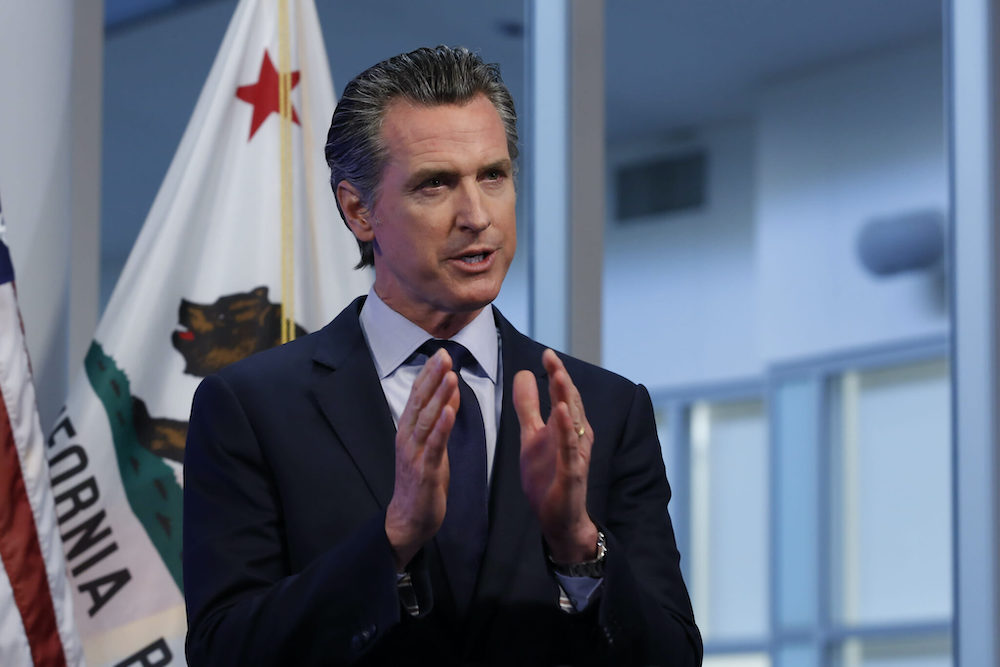
Sunita Sohrabji. Ethnic Media Services. Peninsula 360 Press [P360P].
California Governor Gavin Newsom on January 8 presented the state budget for 2021-2022, a $227 billion proposal that prioritizes the vaccination campaign, reopening of schools safely, support for small businesses and direct cash payments for low-income people.
"Our budget reflects the realities of a pandemic-induced recession that has exacerbated inequalities for decades," Newsom said. "Income disparities have come to the fore, and our budget addresses those disparities. He noted that even in the midst of the pandemic, the state's highest income residents and essential businesses have thrived, contributing unexpected revenues to the state fund.
"People who are in that condition are doing pretty well. But I don't envy their success. Instead, I admire and respect it," he said, adding that the budget reflects the need to rethink additional revenues to support the state's residents most affected by the pandemic.
To address the COVID-19 pandemic, the governor has proposed $372 million for vaccine distribution. Newsom said California currently has 2.5 million doses of Pfizer and Modern vaccines, and more than 1 million doses are expected to be delivered by January 15. The state will launch public service announcements in different languages January 10 to inform various audiences about the benefits of the vaccine and how to access it.
Another $473 million has been set aside for testing and follow-up studies.
575 million has been proposed to help small businesses recover through grants ranging from $5,000 to $25,000. Small business owners who require more information about the program, as well as to apply, can do so online at covid19.ca.gov. Applications must be submitted by January 13.
Earlier in the week, the Governor introduced the "Golden State Stimulus" proposal, a $5 billion plan to distribute cash payments to 4 million low-income residents of the state of $600, in accordance with the procedures of the California Earned Income Credit program. State lawmakers have already called for this program to be expanded, saying that $600 is too small an amount to support those who have lost income due to the pandemic.
The state also plans to distribute $2.6 billion to delinquent tenants to help them with back rent, but Newsom said the state has not yet established a framework for distributing these funds.
Newsom said one of its top priorities was to open schools safely as soon as possible, and it has allocated $90 billion for the education of preschoolers through age 14, the highest amount in the state's history.
2 billion will go to immediate measures to get students back into face-to-face education. An additional $4.6 billion has been budgeted to expand summer schools and after-school programs; this reflects the reality of parents now working longer hours to maintain their homes in California. Newsom said additional funding has been set aside for low-income students, English language learners and refugee youth.
"We have our sights set on equality. The children are lagging behind," he said.
400 million has been allocated to children's education and 1.5 billion to adaptive education. Newsom said he had to go to an adaptive education school as a child.
Another $786 million has been budgeted for UC and CSU: the former will receive $425 million, while the latter will receive $361 million. Of that amount, $100 million has been budgeted to meet the basic needs of students, such as food and housing, and another $30 million will go to school-based mental health programs. 250 million will support the expansion of the state's college financial aid programs. The governor strongly opposed the increase in tuition fees.
Despite increased investment in the education sector, there was no mention of improved education infrastructure for low-income and rural children who cannot immediately return to the classroom and who lack basic tools such as laptops and high-speed Internet to be part of online learning.
The budget also addressed the housing and homelessness crisis in the state, which has been exacerbated by the pandemic. Currently, more than 151,000 people are living on the streets or in temporary shelters. Newsom noted the success of the $846 million Project Homekey program, which purchased 94 motels and hotels and turned them into permanent housing for 6,000 homeless people. The new budget adds an additional $1.75 billion for the purchase of more motels and hotels and to add on-site mental health and substance abuse support services.
The governor also budgeted $1.1 billion to expand the state's health care infrastructure, including the MediCal program. Most importantly, however, the 24,000 undocumented seniors in California will still not be able to enroll in any program. Newsom said during a briefing that it was hesitant to budget $3 billion a year to expand health care for undocumented seniors, despite this year's $34 billion budget surplus.
The governor's press conference can be found at the following link: https://bit.ly/3ovvo9R.

